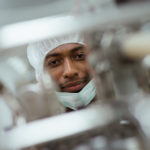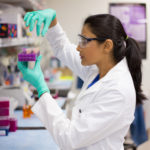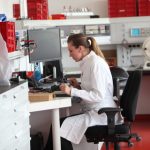
Scientists reveal a genetic map of the human face
An international team of researchers has connected specific genetic regions which influence facial features. Cardiff University reports this means they can see the signals of normal facial features in the genome, but it is also hoped their work can shed light on craniofacial malformations such as cleft lip and palate. The findings have been published … Continue reading Scientists reveal a genetic map of the human face

New drug prevention programme to be trialled in schools
Researchers at Cardiff and Bristol Universities are running the largest ever trial of a peer led drug prevention programme in schools across South Wales and the west of England. Cardiff University says FRANK Friends will run over three years, across forty eight schools, and involve around five thousand six hundred and fifty five students. It … Continue reading New drug prevention programme to be trialled in schools

E-cigarettes don’t normalise smoking for young people
Young people’s views about smoking have continued to become more negative since the introduction of e-cigarettes, according to a study led by Cardiff University researchers. Cardiff University says the analysis, which was conducted in collaboration with colleagues from Edinburgh, Stirling, Glasgow and Bristol Universities, focused on three national surveys containing the views of 248,324 people … Continue reading E-cigarettes don’t normalise smoking for young people

New treatment could restore brain cells in Parkinson’s
Results from a pioneering clinical trials programme that delivered an experimental treatment directly to the brain offer hope it may be possible to restore the cells damaged in Parkinson’s disease. The Journal of Clinical Studies reports a large team of researchers from various institutions across the UK and Canada, including the University of Bristol, Cardiff … Continue reading New treatment could restore brain cells in Parkinson’s

Funding to develop next generation of AI leaders
Swansea University has been awarded funding from the UK Government to create one of sixteen new Centres for Doctoral Training (CDTs) in Artificial Intelligence. It is part of a £100m investment by UK Research and Innovation (UKRI) aimed at enabling a new generation of PhD students to use AI technology to improve healthcare, tackle climate … Continue reading Funding to develop next generation of AI leaders

Robotic trousers could keep elderly people mobile
A team of British researchers thinks the future lies in wearable soft robotics. They’ve developed robotic muscles; air filled bubbles of plastic that can raise a leg from a seated to a standing position. Getting this technology into the trousers might be ten years away, but it is set to give that added boost to … Continue reading Robotic trousers could keep elderly people mobile

£2.9m awarded to tackle antibacterial resistance in Thailand
An inter-disciplinary research consortium led by the University of Bristol has won a £2.9m award from the Global Challenges Research Fund (GCRF) to help tackle the growing incidence of antibacterial resistance in Thailand. Antimicrobial resistance and specifically antibacterial (antibiotic) resistance (ABR) is a growing threat to human health and economic development across the globe. In … Continue reading £2.9m awarded to tackle antibacterial resistance in Thailand

Developing AI for early disease diagnosis in calves
Two researchers at the University of Bristol have been awarded a joint Engineering and Physical Sciences Research Council (EPSRC) UK Research and Innovation (UKRI) Fellowship to investigate early disease diagnosis in dairy calves using AI. The University of Bristol reports the fellowship work, led by Dr John Fennell and Dr Laszlo Talas from their School … Continue reading Developing AI for early disease diagnosis in calves

Current understanding of renal physiology challenged
New research by the University of Bristol has found that the microscopic structure of the human kidney is different to what was previously known. The kidney is a key organ balancing blood and body chemistry through filtration and reabsorption. The control of blood flow and pressure through the kidney is crucial for maintaining this process. … Continue reading Current understanding of renal physiology challenged

Scientists make virtual movies of cells vibrating
Scientists have shown how an optical chip can simulate the motion of atoms within molecules at the quantum level, which could lead to better ways of creating chemicals for use as pharmaceuticals. An optical chip uses light to process information, instead of electricity, and can operate as a quantum computing circuit when using single particles … Continue reading Scientists make virtual movies of cells vibrating








